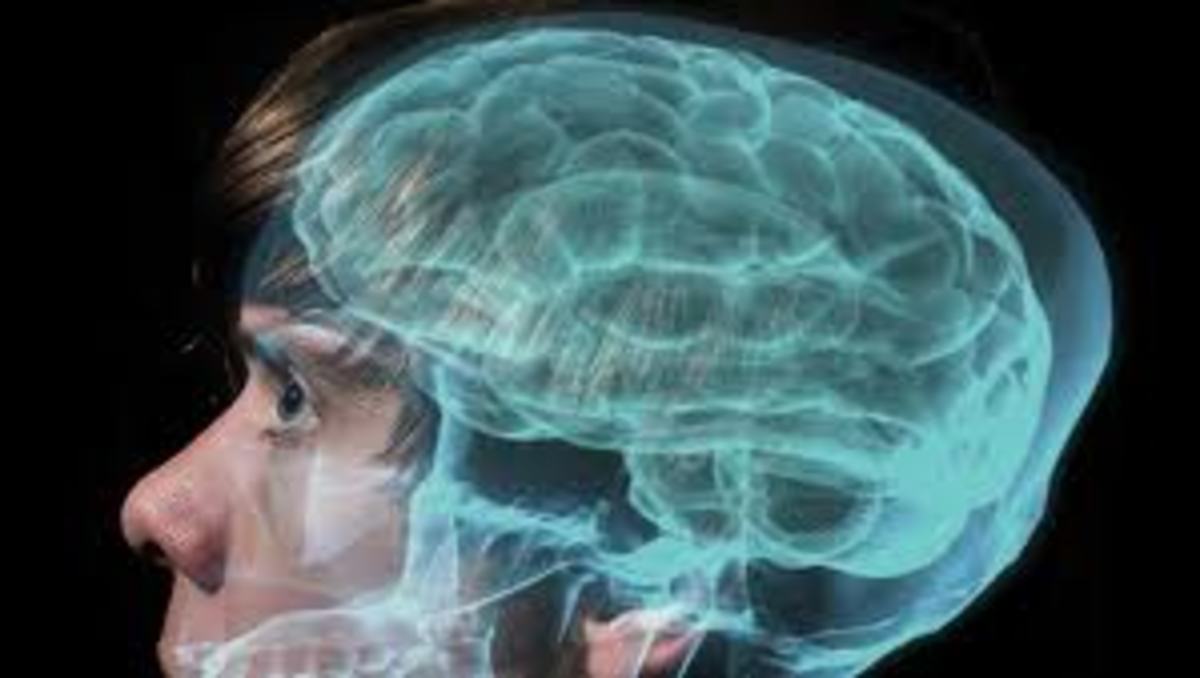- HubPages»
- Education and Science»
- Psychology & Psychiatry»
- Personality Theory & Personality Tests
Understand Personality
How to Improve Your Personality
Understanding Personality
Our personality is as dominant a characteristic as our physical features are. Personality is of great interest to all those in the mental health field, scientists, medical professionals, and evolutionary theorists.
The topic of personality is a complex and in depth subject, and is still studied and researched extensively. There are thousands of words that can be used to describe personalities, thousands of studies that have been done and will be done to try to help us better understand ourselves and others, and many definitions and theories that attempt to clarify what personality is.
Our personality influences everything we do. From the clothes we wear to the people in our lives, from our career choices to our hobbies and passions, our personal tastes, and our reactions to the events we encounter.
What is Personality?
When we meet people, one of the first things we do is determine the personality traits we think we observe. We display a large variety of individual differences in the way we behave, in our emotions, in our thoughts, and in our preferences. Personality starts in infancy, perhaps even in utero. We vary in our energy level, in our activity level, and in our distress level. Our approach, our emotional engagement, our feelings, our mood, our attention span, our self discipline, our maturity, our empathy, our responsibility, our intellect, our imagination, and our interests are just some of our aspects of our personality. Our personality is fairly stable over time, but also change to some degree as we experience different life events.
Personality theories have tried to define what personality means. Yet with all the theories that continue to be developed and researched, we don’t understand enough about personalities to explain the stable parts of personality, and the changes in personality. Science doesn’t understand how personality characteristics affect our mental health, physical well being, our relationships, our professions, our choices, and our motivations.
Personality is largely described by adjectives that have nothing to do with the person’s physical being.
Personality Theorists

Personality Traits
This has led to many personality theories, that consider the traits of the person.
Using a trait approach, people’s personality is categorized into broad descriptions of their behavior. We often use words to describe people by saying they are outgoing, patient, kind, anxious, care less, hostile, creative, needy, etc. Traits are generally stable characteristics that make a person behave they way they do. Traits define people by their differences. These unique combinations an individual displays make up their personality.
A well known trait theory was developed by Gordon Allport in 1936. He came up with a trait theory that took more than 4,000 words he found in the dictionary to describe personalities and categorized them into three levels.
-
cardinal traits
-
central traits
-
secondary traits
Cardinal traits are usually one dominant characteristic that describes a person such as, seeking fame and fortune, greed or ambition. These behaviors are so ingrained within a person, the traits control much of their actions and define much of their behavior. Cardinal traits often make a person spend their lives in pursuit of achievements in the name of these characteristics, and usually these people become known by this single trait. Most people do not develop cardinal traits, and if they do, these personality traits develop later on in years. Most people have multidimensional personalities.
Central traits are the basic characteristics we use to describe a person. These traits are not as dominant as cardinal traits, but are still significant ways of behaving and are usually used to describe a person. Describing a person as intelligent is an example.
Secondary traits are attitudes and preferences that show themselves in certain situations. Observing a person being impatient while waiting in line,is an example of a secondary personality trait.
Learn More About Personality
Cattell and The 16 Personality Types
Raymond Cattell developed 16 key traits to define personalities. Cattell is well known for his personality assessment, called the Sixteen Personality Factor Questionnaire (16PF).
Cattell believed everyone has some degree of every trait, ranging from low to high His assessment was based on where in each trait range a person sits
The 16 Personality Factors
Personality Type
| Low Range
| High Range
|
|---|---|---|
Abstractedness
| Practical & Down-To-Earth
| Creative & Idea Oriented
|
Apprehension
| Self Assured & Complacent
| Insecure & Worried
|
Dominance
| Submissive & Passive
| Aggressive & Forceful
|
Emotional Stability
| Calm & Adaptive
| Reactive & High Strung
|
Livlieness
| Enthusiastic & Restrained
| Serious & Restrained
|
Openness to Change
| Liberal & Untraditional
| Conforming & Familiar
|
Perfectionism
| Disorder & Flexible
| Controlled & Self Disciplined
|
Privateness
| Genuine & Forthright
| Discreet & Non Disclosing
|
Reasoning
| Abstract & Lower Mental Capacity
| Concrete & Fast Learner
|
Rule Consciousness
| Non conforming & Free Thinking
| Dutiful & Moralistic
|
Self Reliance
| Group Oriented & Follower
| Independent & Leader
|
Sensitivity
| Tough & Objective
| Sentimental & Tender
|
Social Boldness
| Shy & Timid
| Uninhibited & Adventurous
|
Tension
| Relaxed & Easy Going
| High Energy & Impatient
|
Vigilance
| Trusting & Accepting
| Suspicious & Skeptical
|
Warmth
| Impersonal & Distant
| Caring & Trusting
|
Raymond Cattell and the 16 Personality Factors
Your Personality
Are You More
Hans Eysenck and The Three Dimensions of Personality
A British psychologist, named Hans Eysenck also developed a personality model using three universal traits, known as The Three Dimensions of Personality.
-
introversion - extraversion
-
neuroticism - emotional stability
-
psychoticism
People who are introverted focus more on their inner experiences and are often quiet, and more reserved. Extroverted people focus on their surroundings and other people and usually are sociable and outgoing.
The dimension of neuroticism and emotional stability is related to how moody a person may be, how easily they become upset, and refers to their mental health and stability.
Our Unique Personalities

The Big Five Theory of Personality
The Five Factor Theory of Personality is very popular among personality experts because some feel that Cattell focused on too many personality traits and Eysenck focused on too few. The Five Factor Theory of Personality, also known as the Big Five Theory of Personality, defines five basic traits that make up people’s personality. They are categorized as:
-
openness
-
conscientiousness
-
extraversion
-
agreeableness
-
neuroticism
As with most theories in science and psychology, the trait theories are both agreed upon, and hotly debated. Some believe there are weaknesses to these broad categories and can be poor predictors of behavior. People might score high on a specific range, and yet they might not always behave the same way in every situation. Trait theories are interesting and offer much clarification about behavior and personality, but they don’t look at the causes,reasons, and ways personalities develop.
No matter what personality theory is looked at, our personality is an integral part of everything we do.
Where Does Personality Come From
Do You Think Personality Develops From
Understanding Personalities
Personality Characteristics
Psychoticism refers to people who have difficulty dealing with reality. They may be antisocial, show open hostility, be non empathetic, and be manipulative.
Our personalities dictate our perspective, our behavior, and our decisions. Depending on your personality, will depend a lot on how you think and react. Personality is a group of complex characteristics that make us unique. Our behavior and emotion combined is the totality of our personality and is described as distinctive traits we display.
These personality traits are broad clusters of characteristics that are common to all people. In looking at any aspect of personality, there may be specific personality traits that are not included, which makes the study of personality a more inexact science. Yet we still may have enough information to form an intelligent opinion about personality and its effect on a person's behavior.
There are thousands of words that describe personality. Personality traits are a way a person behaves, feels, and thinks that reflect environmental and genetic influences.
The Study of Personality

Personality and Genetics
Personality stays steady from day to day, although an individual’s personality can change over the span of a person’s lifetime due to lifecycle events, and intentional reasons. According to some twin studies, about 40% to 50% of our personality is genetic.
The rest of our personality is attributable to individual environmental influences. Science is now beginning to identify certain genes that have identifiable personality traits. Heritability studies are complex because personality traits are presumed by Genome Wide Association Studies (GWAS) to be polygenic, meaning personality is a result of interactions between specific genes, not just from one single gene. There is much that is not known about the gene and environment interaction. Very few research have used a comprehensive study of people’s life history, and environmental events that would identify environmental conditions that can link personality with other external conditions.
Many findings are concluding that the complexities of our personality are connected to our lifestyle choices, our health, and our longevity. The associations are not completely clear, but each study helps us understand how integral personality is so many things to the quality of our life to our longevity. It is perhaps more important to understand our own personality than any other aspect of our being.
Personality, it is thought, may have something to do with risk perception and lifestyle choices.
Science is also making correlations between certain biomarkers that may be connected to certain personality types, illuminating the biological factors about personality. If there are biological factors that may be determined by our genes, then these genes might be interconnected with personality genes.
In addition to biomarkers, scientists have discovered certain DNA sequencing on genes may be indirectly related to personality traits that might be a significant influence on longevity and a healthier lifestyle.
The biological pathways that may link our personality to longevity, are only newly being researched and understood. It is largely not known which biological mechanisms have the potential to affect our behavior. What science is beginning to research is the possibility that there are clusters of genes that may help define our personality.










